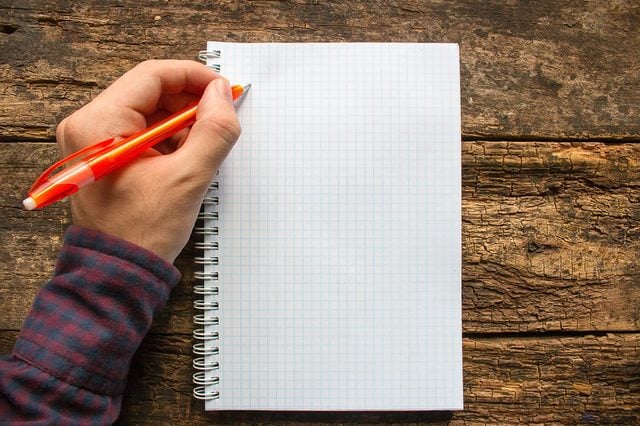The Real Reason Why Some People Are Left-Handed, According to Science
Updated: Jan. 09, 2018
In a new study, scientists may have just discovered what makes you a lefty.
 Raise your hand if you’re a lefty. Congrats! Being left-handed has some surprising perks, including higher levels of creativity and ambition. (Don’t miss all of the benefits of being left-handed.) As a bonus, just 10 to 12 percent of the world’s population is left-handed—making you a rare commodity, too.
Raise your hand if you’re a lefty. Congrats! Being left-handed has some surprising perks, including higher levels of creativity and ambition. (Don’t miss all of the benefits of being left-handed.) As a bonus, just 10 to 12 percent of the world’s population is left-handed—making you a rare commodity, too.
Bragging rights aside, why are people left-handed in the first place? A new study published in the journal eLife might have finally discovered the reason behind this fascinating quirk.
Previous research has suggested that left-handedness is due to genetic differences in the brain. But according to scientists at Ruhr-Universitat Bochum, the spinal cord determines one’s dominant hand, instead. Check out more myths about left-handed people—and two surprising truths.
To reach these findings, the German researchers recruited mothers who were eight to 12 weeks pregnant and examined the gene expression in their babies’ spinal cords. Here’s what they discovered: The motor cortex (which controls arm and hand movements via signals to the brain) and the spinal cord do not connect until the 15th week of pregnancy. However, babies show signs of right or left-handedness at just eight weeks. This suggests that the brain can’t control hand preferences; it must be the spinal chord, instead.
Translation? Your dominant hand is determined by genetic differences in your spinal chord before you are even born. So if you’re a proud lefty, you now have science-backed proof that your genes are extra-special. Here is even more good news: You’ll love these hilarious tweets only left-handers will understand.
[Source: International Business Times, Bustle]
